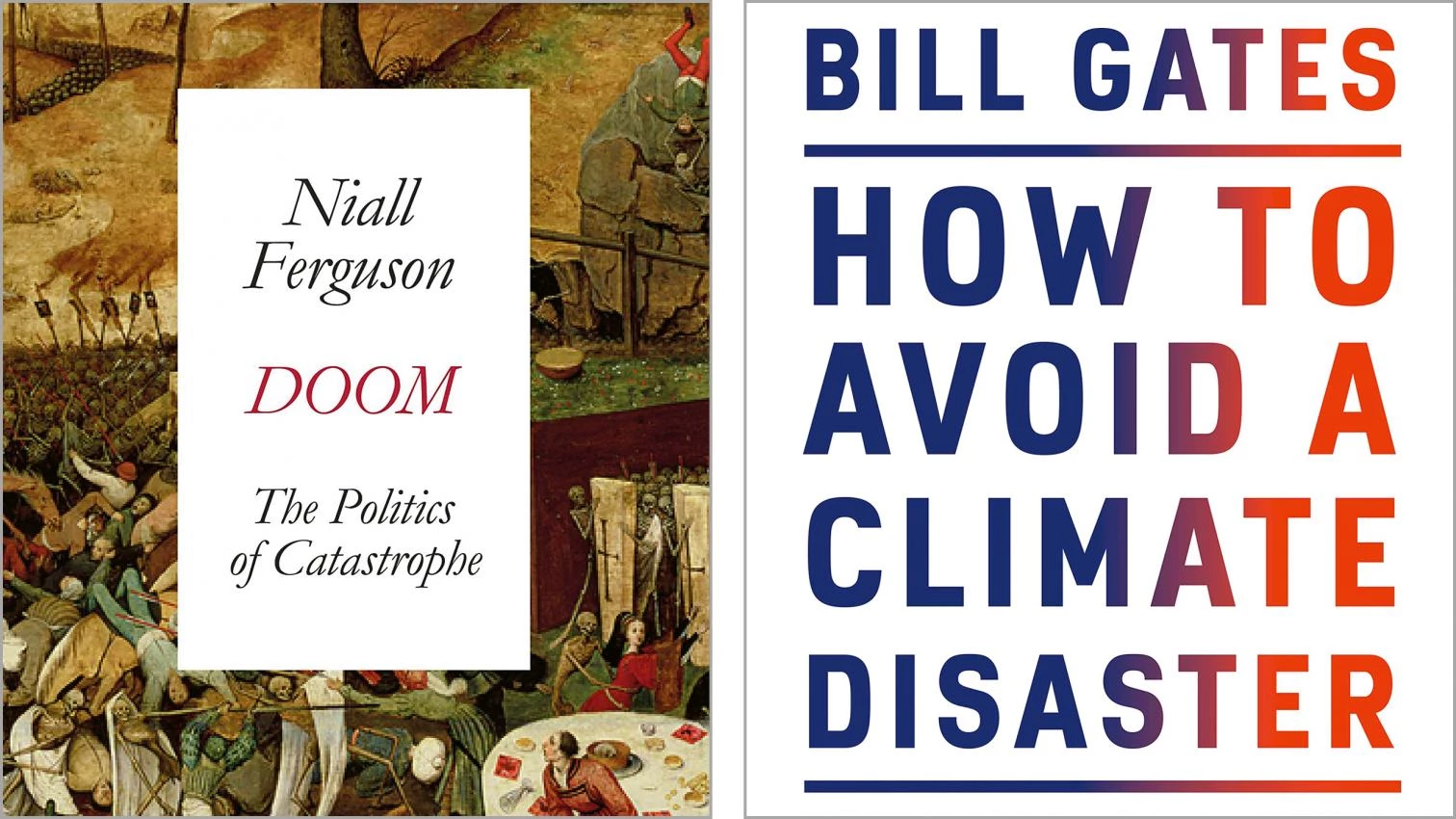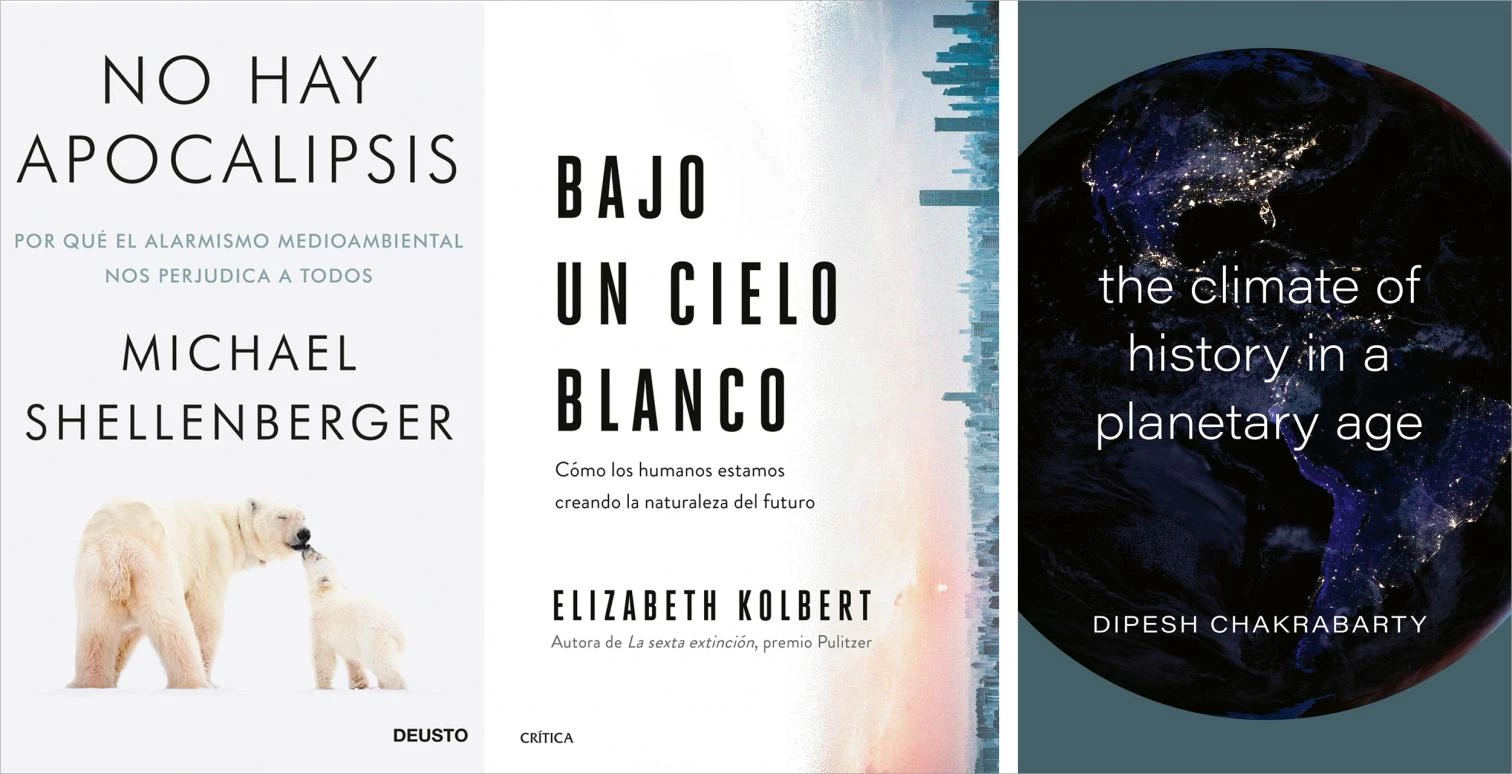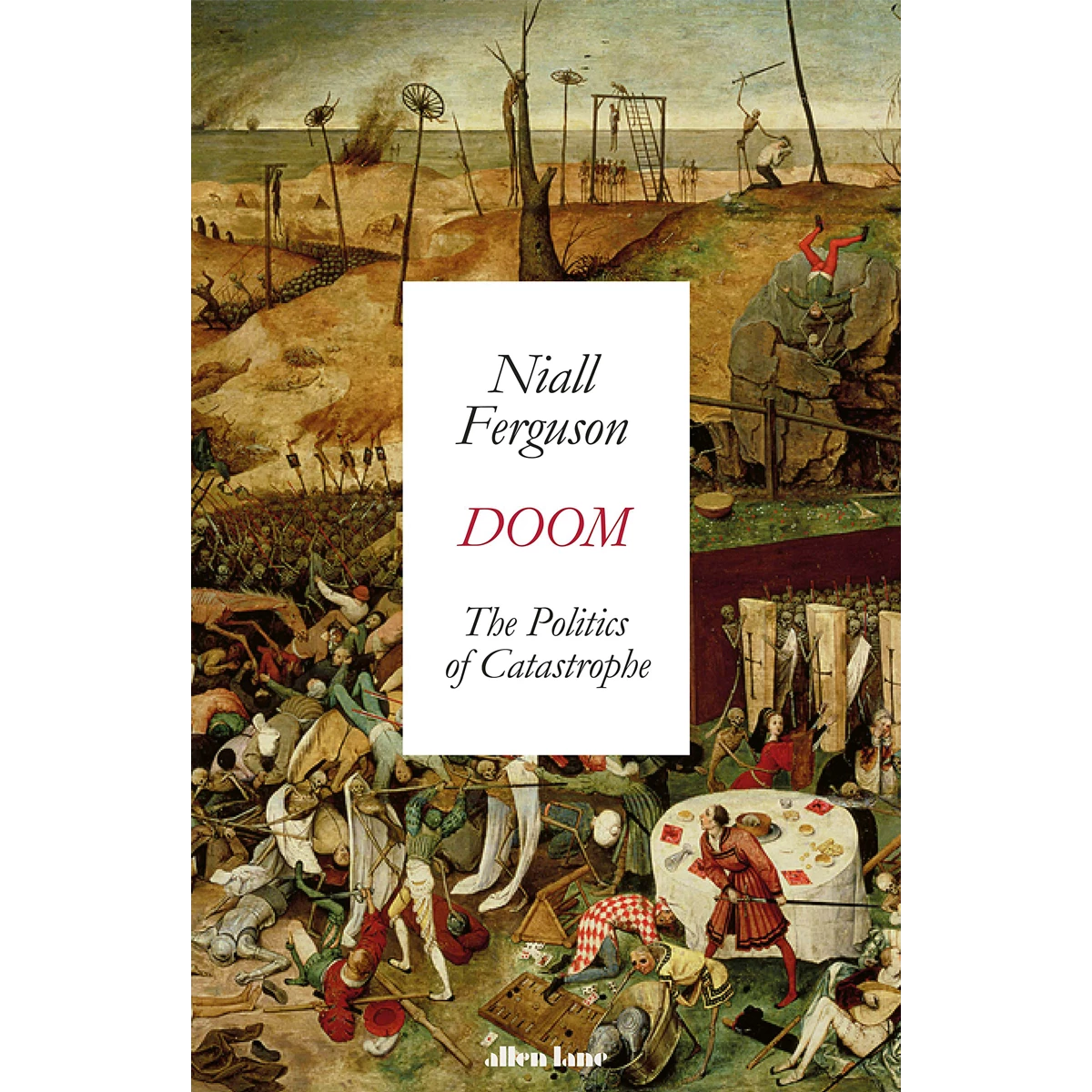
Catastrophe, disaster, apocalypse: amid the existential fear instilled by climate change, pandemics, and artificial intelligence, a group of authors encourages us to contemplate the future of humanity with active optimism. The risks that threaten the survival of our species on the planet have triggered a social movement against climate collapse, Extinction Rebellion; mobilized entrepreneurs like Musk, Bezos, and Branson to promote space flights, arguing that “We have to go to Space to save Earth”; and prompted the publication of innumerable analyses, from Toby Ord’s philosophical reflection in The Precipice, which deems artificial intelligence the greatest menace of the future, to David Farrier’s elegiac archaeology in Footprints, which imagines the fossil remains of our extinct civilization. But those dangers have also led to proposals to face up to the challenges of humanity today, and they are briefly described here.
With the intellectual tools of big history and his known narrative skills, Niall Ferguson tackles a catalog of calamities that includes wars, famines, earthquakes, and epidemics, and his point is that catastrophes always have a political dimension, as even natural cataclysms impact in a way that depends on the resilience or fragility of the society victimized, as the current pandemic has shown. His typology of disaster (predictable ‘gray rhinos,’ unexpected ‘black swans,’ and disastrous ‘dragon kings’) is as evocative as his exploration of the psychology of political incompetence, a pathology common to populisms and democracies.
For his part, Bill Gates proposes pragmatic measures to prevent climate disaster, which range from renewable sources to the more controversial harnessing of nuclear energy, but the essence of his program is the decarbonization of electricity, which must be achieved through technical innovation and taxes. To achieve a zero-emission level, an objective considered within our reach, the founder of Microsoft (unlike so many technolibertarians) advocates combining State power with market initiative, and reorganizing the global economy in agriculture, industry, transport, and construction; a sector, the latter, in which he painstakingly analyzes subjects like low-carbon cement and steel, treating them with the same ‘informed optimism’ that breathes through the whole book.

Equally proactive is the publication of the environmental activist Michael Shellenberger, who after thirty years devoted to a rational ecologism uses scientific instruments and political pragmatism to deal with the apocalyptic environmentalism and extremist alarmism of groups like Extinction Rebellion. Praised by authors like Steven Pinker and Jonathan Haidt, the Californian journalist points out the truths and falsehoods of a movement that has become like a religion, arguing that the lungs of the Earth are not burning, that the so-called ‘sixth extinction’ of species is not as massive as claimed, and that eating meat need not be demonized. A defender of nuclear energy, he states that the polarization between the deniers of climate change and those who exaggerate it is weakening, for in the end, most people want both prosperity and nature.
Elizabeth Kolbert, in turn, explores how humans are creating the nature of the future through geoengineering, and so intelligently and entertainingly tells of her travels to places where the most stimulating projects are being developed, from the Mojave Desert to the lava fields of Iceland. In her reports, she explains the challenge of curbing climate change through procedures like carbon sequestration and seeding the stratosphere with particles to hinder radiation, cooling the Earth and making the blue sky white, and questions the ethic legitimacy of such technological endeavors. Solidly researched and admirably penned, Kolbert’s book is a chronicle of the devastation of the natural world, but also of the efforts of science to prevent climate disaster in a planet that is ours but belongs no less to other species, and stresses this attention to diversity by listing in an appendix the scientific names of the seventy species mentioned in her narrative.
Very different is the book by the historian Dipesh Chakrabarty, who confronts the ‘planeticide’ by calling for a humanistic and critical approach to the Anthropocene, in an essay of philosophical bent and theoretical ambition featuring anyone from Kant and Hegel to Heidegger and Wittgenstein, but which owes especially to the political thought of Hannah Arendt or Carl Schmitt – very unexpected bedfellows – and the ecological approaches of Bruno Latour or Isabelle Stengers. Ever alert to the holistic and far-reaching vision upheld by ‘deep history,’ the anthropology of the Chicago professor re-raises the old question of the human condition in the new framework of the geobiological history of the planet, in controversial dialogue with the ‘radical academy’ of Jason W. Moore or Andreas Malm (whose latest books are reviewed in previous pages), but without precluding an intimate commitment to the victims of climate disasters – humans or not, to whom his work is dedicated –, focusing on those who recently perished in the fires of the Australia where he taught for years and the cyclone in the Bay of Bengal that whipped the Kolkata where he grew up.
Nature has burst into history, and all disciplines, starting with architecture itself, rewrite the past from the angle of climate, energy, or pandemics. If geography and economics were the great protagonists of the Annales school, geology and biology fertilize the ambitious accounts of ‘big history’ and ‘deep history,’ making us aware of our shared voyage in the small blue planet that our own species has so altered. We passengers of Spaceship Earth know we are now inhabitants of the Anthropocene, and have no other tools for facing the dangers of the expedition than scientific knowledge and technical innovation, supported by political cohesion and solidarity. Our species is relatively young and does not deserve to perish from success: the apocalypse announced by some is not a sinister end, but a bleak warning that should be a stimulus for a new practice of survival.










